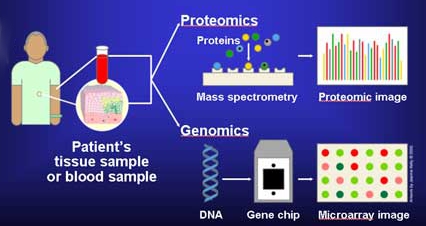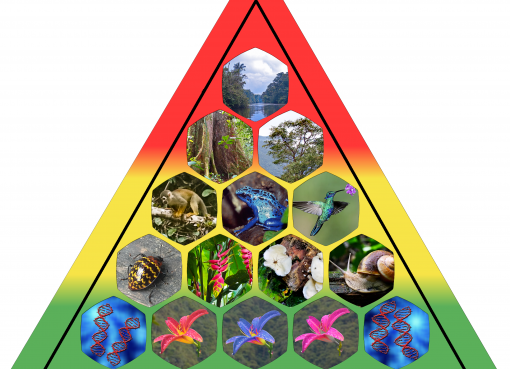Evolution has made its existence right from the formation of our planet earth; and after the appearance of human beings, study of science has covered a milestone. Biology literally means “the study of life”, a study of living mysteries, from the working of a protein molecule to the growth of an organism from a single cell. All started in the 4th century BC when the Greek philosopher Aristotle traveled to Lesvos, an island in the Aegean teeming which gave birth to the subject Biology. Later, several scientists have made valuable contributions in this field. With the technological advancements, a scientist could move towards more detail study of a cell and its components. Today, researchers around the world are interested in the molecular level study to understand the basic principles of molecular foundations of the process of replication, transcription and translation of the genetic and other molecular material.
In the present era, knowledge of Molecular Biology (MB) and Bioinformatics has become important tool for thorough study in the field of Life Sciences. Evidence on any biological experiments achieved using these tools is considered more reliable and significant. Every field of Life Science, viz. Systems Biology, Genomics, Metagenomics, Population Genomics, Proteomics are solely dependent on these tools. Through the recent achievements in cloning, biotechnology has brought a revolution challenging the natural law of genetics. Trans-genomic and proteomic studies have helped plant biotechnologists to create various transgenic plants according to the demand and their yield. Now it is possible to think about gene manipulation. Knowledge of computational biology and Bioinformatics has helped researchers in the field of medicine and drug designing. Hence, it is evident from the current scenario that tools of molecular biology and bioinformatics are of immense importance for biological research. Without the knowledge of these tools, the biotechnological study is vague.
The undergraduate/graduate curricula for Life Sciences in many universities of India are at their initial stage. Almost all government colleges in India do not have undergraduate courses on molecular biology and bioinformatics. Some private institutions offer PG degree in these subjects where course fee is very high. Although some universities provide diplomas on the subjects, due to lack of seat availability, it is difficult for every student to avail the course. Therefore, considering the latest scientific developments as well as various loopholes within the education system, there is a need to incorporate more contents related to molecular biology and bioinformatics in the undergraduate biology curricula of universities in India. The inclusion of the topics will help students to gain more knowledge and expertise which will benefit them for their future research and career uplift. Merging of more molecular biology and bioinformatics contents will benefit the students economically as well as with time. Moreover, if the students are introduced to the advanced molecular and computational tools at their undergraduate level, it will help them to understand and conceptualize the idea about the molecular mechanisms of interactions among the micro- and macro-molecules within the living organisms in their higher studies. Hence, for better understanding and future research benefits, inclusion of advanced biological study tools is important in undergraduate syllabus in India.
Freeman Boro, M.Sc., Ph.D. SRF, Biotech Hub, Chaiduar College Sonitpur, Assam Erasmus Ph.D. Exchange Fellow (Portugal)
Molecular biology is one of the most rapidly developing subjects today and it has huge potential in fundamental understanding of life as well as finding solutions to various problems of the living world.
Like information technology, molecular biology has become a necessity for the biologists. Unfortunately, molecular biology could not be properly introduced in all the educational institutes of our country. As a result, a large number of students and biologists remain deprived from the recent advances in this field and also fail to make significant contribution to the modern knowledge base of biology.
If molecular biology is introduced at the undergraduate level, it can certainly yield many positive returns for the benefit of the students as well as the society. It would open more career options for the science students who generally consider medical and engineering as the best options. Also when the students get acquainted with the subject from the undergraduate level, they are more likely to contribute to this field and it can open job opportunities for them in today’s world where applied biology is going to play a significant role in economy as well. Modern biological research and discoveries which seem to be confined to the developed countries can be brought about in our country and the state as well.
Moitrayee Banerjee Assistant Professor Department of Botany Cotton University Guwahati, Assam.
The undergraduate biology in Indian system of education mainly includes the subjects of Botany and Zoology which have very few contents of latest biological tools. Molecular Biology and Bioinformatics are invaluable scientific tools to address several unresolved questions in the biological field. In present times, there is much more understanding not only on genomic sequences, RNA and proteins but also on molecular interactions among these biomolecules, their sub-cellular localization and identification of similar molecules across different species. Further understanding of these complexities in biological sciences requires the development of molecular biology and bioinformatics. Chapters in Molecular Biology must be included in both the subjects of Zoology and Botany at the undergraduate level of study. The undergraduate biology curricula must be designed to provide students with the knowledge and skills in Molecular Biology and Bioinformatics so that they can explore the 21st century biology. There is a need to incorporate more such contents in the undergraduate biology curriculum of universities in India so that students becomes equipped for further study related to this field of technology. Moreover incorporation of the latest information will increase the level of analytical skills and insight for higher research.
Dr.Rajkishor Gogoi, PhD
Faculty of Allied Health Sciences,
Mahatma Gandhi University,
Meghalaya, India
That is a very nice topic. Undergraduate biology syllabus of most of the universities hardly contains molecular biology and bioinformatics contents. Very small portion is there only. That is why the students have to face lots of problem in postgraduate studies and in their further studies leading to PhD and the like. Therefore, incorporation of more content related to molecular biology and bioinformatics in the biology syllabus will be very helpful for the upcoming students if this is taken into consideration by the universities.
Rajesh Dev Sarkar Junior Research fellow Advanced level Institutional Biotech Hub Arya College, Guwahati, Assam




